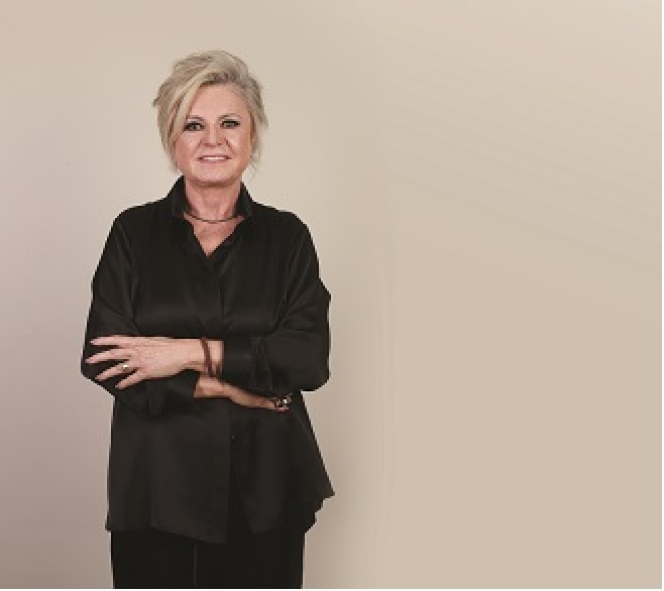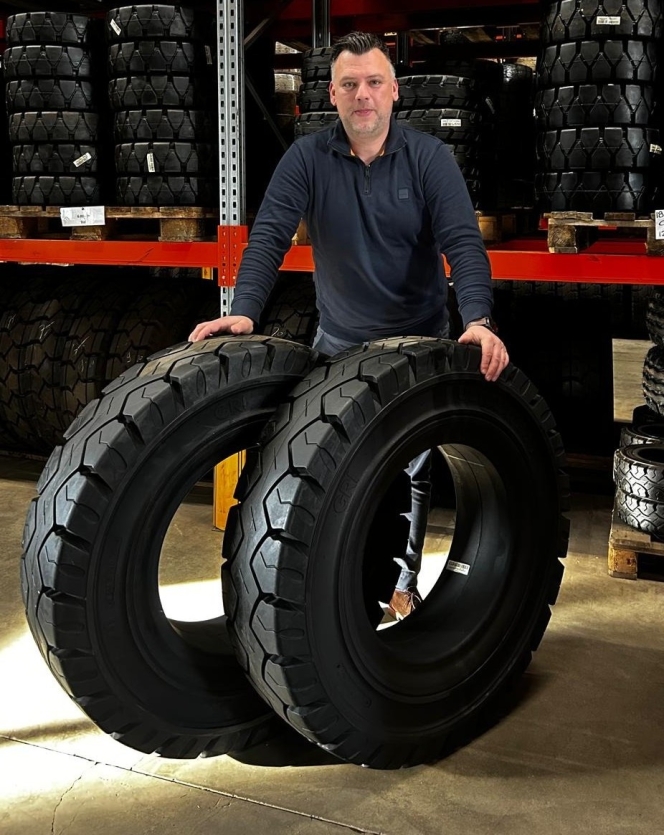
A proposed bill in Brazil’s Chamber of Deputies has ignited fierce opposition from the country’s tyre retreading sector, which sees the legislation as an ill-conceived and uninformed attack on an industry that plays a crucial role in the economy and sustainability efforts. The bill seeks to ban the use of retread tyres on buses and trucks operating on state and federal highways, a move that the industry argues is both impractical and detrimental.
Brazil is the world’s second-largest retread market, following only the United States. This achievement has been attributed to the reliability and quality of work carried out by retreaders, which has earned the market’s trust.
In September 2024, a draft bill was introduced in Brazil’s Chamber of Deputies to exercise a ban on the use of retread tyres in buses and trucks operating on state and federal highways. The Brazilian Association of Tyre Retreading (ABR) lashed out at the proposed draft, labelling it as ‘misguided and uninformed’.
Subsequently, ABR President and Federal Senator of Mato Grosso, Margareth Buzetti, told Tyre Trends, “The proposed bill focuses on retread tyres rather than broader factors such as overloading, poor road conditions or inadequate maintenance practices due to sheer misinformation on the part of the person who proposed the project. It is a simplistic and populist proposal that promises to increase road safety by fighting the wrong enemy. Tyres retreaded in Brazil undergo extremely rigorous inspections to ensure that they reach the transport companies safely and reliably.”
“We, as retreaders, meet Inmetro standards that define the technical requirements for tyre retreading, following the standards of excellence practiced in other countries. We are talking about large companies that have strict quality standards. We are in no way inferior to new tyres in terms of safety,” she added.
According to Buzetti, no reputable company would compromise on tyre safety as doing so could lead to financial losses from accidents and endanger lives. She also pointed out that the sector’s ability to generate approximately 300,000 direct and indirect jobs is a testament to the high quality of retreaded products.
Commenting on how the proposed bill might influence public perception about the sustainable practice, she noted, “The way it was proposed is terrible because it gives people the impression that retread tyres in Brazil are of poor quality and are responsible for road accidents. This is absurd misinformation. However, I do not see this issue as something that concerns the general population. Transport companies, which are the largest users of retread tyres, are aware of the reality.”
“Entities linked to both the reform and transportation sectors sent dozens of letters to the Chamber of Deputies against the proposed bill. We will continue this pressure in 2025,” she added.
The association plans to seek out the rapporteur and the author of the bill so that they understand the seriousness of the work carried out by the sector. “The right thing to do would be for the congressman to withdraw the bill he presented and file another one that focuses on combating illegally-made reforms or the poor-quality tyres that are imported from Asia without any control whatsoever. Then they will have our support. Otherwise, we will seek out partner congressmen to wage a real battle within the Chamber against the advancement of this absurd proposal,” contended Buzetti.
IMPLICATIONS OF THE BILL
Buzetti noted that if the proposed bill was implemented, then the implications would be ‘catastrophic’. “If the bill were to become law, the long-term impact on Brazil’s tyre industry would be devastating. Companies are already struggling with the rising cost of raw materials due to increase in the Dollar-Brazilian Real exchange rates. Banning tyre retreading would further cripple the sector, leading to significant financial and operational challenges,” she said.
Currently, tyre retreading saves Brazil BRL 7 billion in transportation costs. If the proposed bill becomes law, which the ABR believes is unlikely and will actively oppose, it would effectively force transportation companies to buy only new tyres overnight, causing a massive rise in costs.
Alluding to the potential impact of this legislation on Brazil’s carbon neutrality and sustainability goals, Buzetti emphasised, “The sector was recently recognised by the Ministry of the Environment as an important asset in the circular economy. This was a milestone that we achieved at great cost, and the government is finally beginning to see our importance for environmental sustainability. I believe that 2025 will be the year in which we will be able to make even more progress on this issue. We cannot ignore the importance for the environment of a sector that retreads 14 million tyres per year.”
While the association can furnish data demonstrating the safety and reliability of Inmerto-certified retread tyres to battle the proposed bill, Buzetti, attacking the project makers, said, “Can the deputy who created the project present data that guarantees that the lack of safety on the roads is caused by retread tyres?”
Commenting on the bill’s impact on small and micro enterprises if implemented, Buzetti said, “Tyre retreading supports 300,000 jobs in Brazil today. It is a well-established market. Banning retreading would be like taking food off the table for thousands of Brazilians who rely on this sector.”
ALTERNATIVE ROUTE
According to Buzetti, the legislative year ended with this bill being presented to the Chamber of Deputies’ Transport and Roads Committee and it did not receive any amendments within the statutory deadline. Now, in February, discussions on the proposal can begin and she highly doubts that it will move forward. As a senator, she will not participate in the votes in the Chamber but will personally go to the committee to talk to all the deputies to demonstrate the quality of tyre retreading in Brazil.
Speaking on the steps that the government should take to address any lingering safety concerns and prevent future proposals like this, in case the bill was withdrawn, Buzetti said, “Inspection of poor-quality tyres entering the country and incentives for tyre retreaders to continue operating within the law is a necessary step. I presented a bill that is currently pending in the Chamber of Deputies that provides tax exemption for tyre retreading companies, as a way of attracting them to formality.”
She also noted, “Instead of banning retread tyres, we could have greater oversight of imported tyres that enter Brazil illegally. We are talking about tyres that are so bad that they don’t even need to be refurbished. These should be a priority for parliamentarians. And, of course, improving road conditions and oversight of the rules that must be followed by transport companies (such as not exceeding the maximum load) are also important steps to increase road safety.”
ATF Tyres Appoints Rajesh Vyas As Vice President Of Sales And Marketing
- By TT News
- March 03, 2026

ATF Tyres, one of India’s leading manufacturers of off-highway tyres, has announced the appointment of Rajesh Vyas as its new Vice President of Sales and Marketing. Vyas brings over 25 years of global experience to the role, having worked across diverse international markets to build high-performance sales teams and enhance distribution networks.
His professional background includes leadership roles in brand positioning and product portfolio expansion within competitive sectors. Prior to joining ATF, Vyas served as Vice President at Rubber King Tyre Group. He also held key positions at Balkrishna Industries Limited as Head of Mining Tyres for India and spent a decade at Apollo Tyres Ltd as Business Head for Off-Highway Tyres.
With the company working to expand its footprint in the agricultural, industrial and OTR segments worldwide, Vyas’s strategic leadership and commercial insight are expected to support ATF Tyres in delivering performance-driven solutions across multiple regions.
Continental Intros ‘Nod Of Confidence’ Ambassador To Enhance Tyre-Buying Experience
- By TT News
- March 03, 2026

Continental Tire has introduced a fresh and distinctive marketing figure known as the ‘Nod of Confidence’ ambassador to connect with drivers on a deeper level. This initiative is designed to encapsulate the precise moment a customer feels absolute certainty in their purchase decision, visually represented by a simple, affirming nod. It is a symbolic gesture that conveys the reassurance, trust and satisfaction associated with selecting a premium tyre brand.
For years, Continental has been regarded as the smart choice in the industry, a reputation built on a steadfast dedication to superior quality, advanced technology and dependable performance. The company consistently responds to market demands by engineering tyres that deliver exceptional comfort and peace of mind. Recognising that the process of buying tyres can often be complex and filled with uncertainty, this campaign targets the emotional journey of the consumer. It aims to capture that pivotal moment of clarity when a driver moves from questioning and comparing options to confidently confirming they have chosen the best solution for their vehicle and family.
This new ambassador is an extension of Continental's broader mission to simplify and enhance the tyre-buying experience. By blending cutting-edge tread innovations with customer-focused education and support, the brand continues to prioritise driver needs while reinforcing its leadership in the automotive industry.
Brian Beierwaltes, Head of Marketing US PLT, Continental Tire, said, “We understand that today’s consumers are looking for more than just a product, they’re looking for confidence. This creative idea brings our ‘Smart Choice in Tires’ philosophy to life in a simple, relatable way. That nod represents reassurance, expertise and the peace of mind that comes from selecting a brand that consistently delivers on performance, comfort and innovation.”
GRI Appoints Eldo Verhaagen To Lead Benelux Material Handling And Agriculture Operations
- By TT News
- March 03, 2026

GRI, a leading producer of speciality tyres from Sri Lanka, has named Eldo Verhaagen as its new Sales & Operations Director for Material Handling and Agriculture across the Benelux region. This strategic move underscores the company’s drive to enhance its regional footprint by reinforcing leadership, improving operational efficiency and strengthening relationships with local customers. Verhaagen’s arrival marks a continued push to expand GRI’s presence in both the material handling and agricultural sectors.
With extensive experience in the tyre and automotive fields, Verhaagen brings a proven background in guiding strategy, boosting commercial performance and refining operational processes. His familiarity with a broad range of tyre types – including those used in trucking, farming, construction and material handling – combined with a direct, customer-oriented working style, makes him well-suited to steer the region through its upcoming growth phase.

Verhaagen takes over from Herman Klumpenaar, whom GRI has thanked for his dedicated leadership and smooth handling of the leadership transition. The Benelux team is now set to collaborate closely with Verhaagen, aiming to sustain regional progress and ensure long-term, steady development.
Giorgio Gramegna, Director of Europe – Sales, Marketing and Distribution at GRI, said, “We thank Herman for his leadership and contribution over the years. We are pleased to welcome Eldo and are confident that his experience and market knowledge will further strengthen our presence and performance in the Benelux region.”
Goodyear Launches ‘The Vault’ Online Marketplace
- By TT News
- March 03, 2026

Goodyear has unveiled The Vault, an innovative online marketplace designed to transform how the public interacts with its brand and 128-year heritage. This digital destination allows visitors to explore and acquire a thoughtfully assembled selection of historic artifacts, autographed collectibles, special-edition products and extraordinary experiences. Serving both as a platform for collectors and a dynamic archive, The Vault merges significant items from Goodyear's past with contemporary cultural partnerships and exclusive new merchandise.
The collection features compelling pieces such as a segment of the engine from the legendary Spirit of America Goodyear Blimp, one of the company's earliest tyres produced in 1899, tyres raced at the 2025 NASCAR Cup Series Championship and celebrity-signed goods. To celebrate the launch, a limited-time digital puzzle is being offered. Participants who successfully solve the riddle on the company website will be entered to receive one of 30 cryptex vaults filled with exclusive prizes. These rewards range from branded merchandise to the premier prize: a private flight on the famous Goodyear Blimp. The Vault is currently accessible, with plans to release new items and opportunities throughout the coming year.



Doug Grassian, Vice President, Global External Communications, Social Media and Partnerships, said, "There's nowhere else on the planet that you can buy a section of a Goodyear Blimp engine or one of the first tyres ever made. By opening The Vault, Goodyear is transforming its legacy into something tangible, collectible and meaningful."







Comments (0)
ADD COMMENT